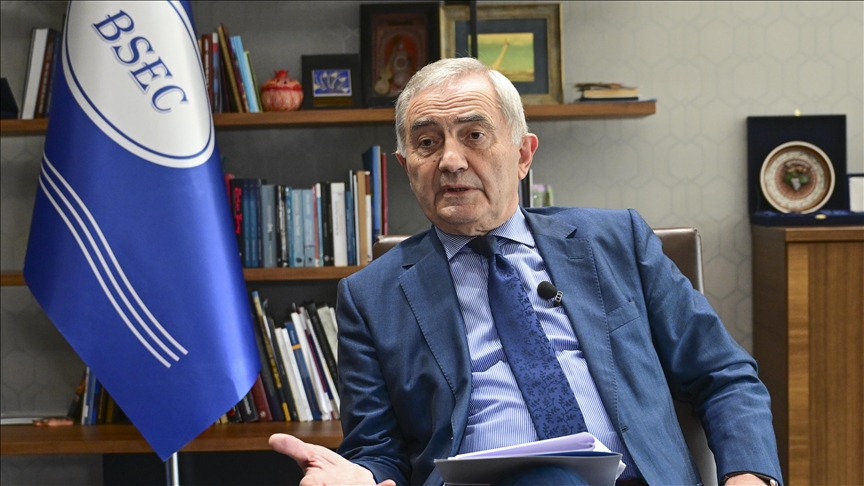ISTANBUL
Türkiye is one of the key and most active participants of the Black Sea Economic Cooperation (BSEC), according to the organization’s general secretary.
“Türkiye has been one of the most active participants in the decision-making process in this organization, and one of the most active members of the BSEC in terms of bringing up, launching, and promoting initiatives,” Lazar Comanescu told Anadolu.
Türkiye will hold the term presidency of the organization for the next six months as of July 1, he said, adding that the activities postponed and canceled due to the Russian war on Ukraine have resumed.
On the occasion of the 31st anniversary of the BSEC, Comanescu said the organization was established on June 25, 1992, under the leadership of Türkiye to increase stability, predictability, and security in the region by promoting economic dialogue and cooperation among member states.
The 13-member organization brings together the representatives of the member states through more than 20 working groups on trade and development, environment, agriculture, energy, transport and infrastructure, he added.
Regarding the natural gas discoveries in the Black Sea, he said energy is one of the BSEC’s priority fields of activity and cooperation.
“Discovering gas resources in the Black Sea region and directly operating it will benefit the entire region,” he said, recalling the discoveries of gas reserves in Romania, Bulgaria, and Türkiye.
Comanescu also praised Türkiye’s effort in the Grain Corridor Agreement, which is extremely important for food security enabling the supply of grain produced in Ukraine or Russia.
“Thanks to the efforts of actors such as Türkiye, keeping the doors open has enabled this agreement to be made,” he added.
Headquartered in Istanbul, the BSEC was established in 1992 to act in a spirit of friendship and good neighborliness and to enhance mutual respect and confidence, dialogue, and cooperation among the member states.
The group has 13 members: Türkiye, Albania, Armenia, Azerbaijan, Bulgaria, Georgia, Greece, Moldova, North Macedonia, Romania, Russia, Serbia, and Ukraine.

